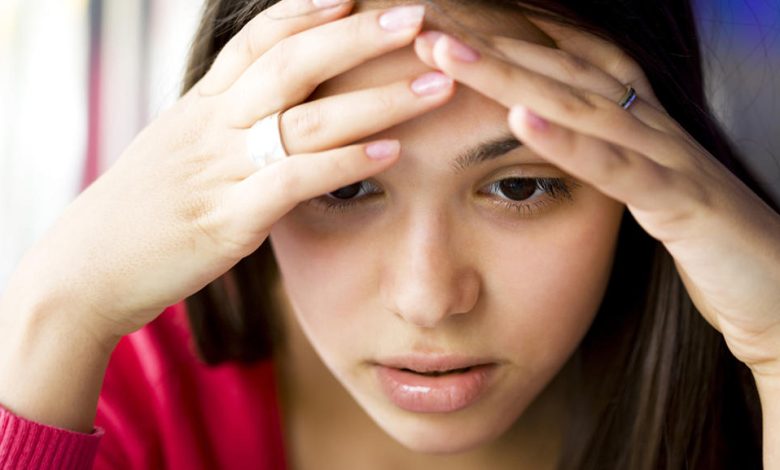What is vertigo attack?

Vertigo refers to a sense of spinning or false movement. In short, vertigo patients often feel as if they or their surroundings are moving around uncontrollably, even without any external motion stimuli present. Vertigo attack refers to the duration in which a patient experiences these symptoms acutely for a certain length of time. Vertigo attacks affect every person individually & each person experiences different symptoms.
It all depends on the exact medical history, symptomatic presentation, & the exact underlying cause of your vertigo. During an attack, patients often feel disoriented & off-balance, along with spells of dizziness, lightheadedness, & nausea. They might also experience other symptoms ranging from hearing loss & vision issues to rapid eye movements, headaches, & nausea.
Some of the most common symptoms & feelings experienced during a vertigo attack include:
- Nausea
- Vomiting
- Motion sickness
- Migraine headaches
- Dizziness
- Spinning sensations
- Ringing, buzzing, or a whistling sound inside the ears(also known as tinnitus)
- Hearing loss
- Vision issues
- Rapid, abnormal, jerky eye movements also known as nystagmus
- Rapid heartbeat, also known as tachycardia
- Excessive sweating
- Chills
- Lightheadedness
- Disorientation
- Difficulty maintaining a steady gait
- Swaying towards one side
- Tilting to one side of the body
Vertigo attack causes:
Vertigo can have a variety of causes. Each of them is due to individual health factors & conditions. While most of these vertigo cases are benign & don’t pose any significant health risks to people, some of these are potentially serious. Thus they need immediate & careful evaluation & prompt treatment to ensure the safety & good health of the patient.
Some of the most well-known vertigo causes include:
Benign Paroxysmal Positional Vertigo:
Also known as BPPV, it is a type of peripheral vertigo that is caused by the displacement of tiny calcium crystals called otoliths. These motion-sensitive crystals usually reside inside the middle ear, from where they can accidentally get deposited into the semicircular canal of the inner ear. Since the inner ear consists of motion-detecting hair-like structures, these crystals activate these structures, making them send false balance-related signals to the brain. This mismatch between the actual position of the body & the false balance signals from the inner ear is what causes the sudden spinning sensation & dizziness that occurs in people with BPPV.
Anything from a head injury, ear surgery, or trauma to the head can cause BPPV. Ear infections can also sometimes be the cause of BPPV. BPPV is usually treated with the help of vertigo exercises, vertigo medicines, & some home remedies. These exercises include the Epley Maneuver also known as the canalith repositioning manoeuvre, the Brandt-Daroff exercises, & the Semont-Toupet manoeuvre. These exercises help remove the dislodged calcium crystals form inside the semicircular canal & place them back into the middle ear. Vertigo medicines like meclizine tablet, vertin tablet, & stugeron tablet, etc. are also useful in reducing vertigo symptoms like dizziness, nausea, motion sickness, vomiting, etc.
Vestibular Neuritis:
Vestibular Neuritis is an inner ear infection that affects the vestibular nerve of the inner ear. This nerve is responsible for carrying balance-related signals to & from the inner ear to the brain. When this nerve gets swollen or inflamed, this transfer of balance-related signals can’t take place properly. This causes symptoms like dizziness, nausea, motion sickness, & vertigo. Vestibular Neuritis is often caused by bacteria & viruses, & its treatment also depends on the exact pathogen causing the infection. If bacteria are the cause, your doctor might prescribe you an antibiotic, while if viruses are the cause, then you should rest & intake plenty of fluids while the infection clears on its own in some time.
Labyrinthitis:
Labyrinthitis is also an inner ear infection that is caused by bacteria or viruses. However, unlike Vestibular Neuritis, it actually affects the labyrinth inside the inner ear as a whole. The labyrinth is an organ inside the inner ear that houses the body’s vestibular system, which is responsible for maintaining balance & position of the body. When the labyrinth gets irritated & swollen, this leads to symptoms like dizziness, nausea, motion sickness, vertigo, spinning sensations, hearing loss, earaches, & more. Similar to Vestibular Neuritis, Labyrinthitis is also treated with the help of antibiotics & fluids, along with rest & some medicines to treat the pain & inflammation.
Meniere’s Disease:
Meniere’s Disease is an inner ear disorder that is caused by an excessive amount of fluid inside the ears. Earwax blockage, head injuries, & ear injuries can all cause Meniere’s Disease. Patients with Meniere’s often experience feelings of pressure inside the ears, ringing, buzzing, & whistling sounds in the ears, dizziness, nausea, motion sickness, & hearing loss, usually in the affected ear. Meniere’s Disease is usually treated with certain exercises, medicines known as diuretics(water pills), reducing salt intake, & eating more fibre-rich foods. Cleaning the ears regularly with doctor-recommended cleaning tips to remove any excess earwax is also a treatment method.
Other causes of vertigo include:
- Head injuries
- Neck injuries
- Ear surgery
- Middle ear infections
- Certain Autoimmune disorders like Multiple Sclerosis, lupus, etc.
- Central nervous system disorders
- Brain tumours
- Acoustic neuroma, which often grows on the vestibular nerve that maintains the body’s balance.
- Stroke
- Transient Ischemic Attack(TIA), also known as a minit-stroke
- Heart diseases or cardiac problems
- Other widespread infections and certain poisonous substance exposure
Vertigo Treatment:
Vertigo attacks often happen suddenly & usually occur without warning. Most attacks are acute in nature & last for a few seconds to a few minutes. Vertigo treatment generally depends on the entire nature of the episode(or vertigo attack), symptoms, their presentation, & more. Patients’ medical history is also recorded and taken into consideration.
Some of the most common vertigo treatment methods include:
Vestibular Rehabilitation Therapy:
Vestibular Rehabilitation Therapy consists of exercises that are specifically designed to train the body to compensate for the losses in the natural vestibular system. Since the vestibular system is unable to maintain the body’s balance, these exercises help train the brain to develop alternative coping mechanisms to keep up the body’s balance. These exercises instruct the brain to rely more on other organ systems like the leg muscles & the eyes to maintain balance & coordination. Your doctor will recommend these exercises to you based on your exact symptoms, the area affected by the vertigo symptoms, & your medical history.
Vertigo exercises:
Vertigo exercises like the Canalith Repositioning Maneuver(also known as the Epley Maneuver), the Brandt-Daroff exercises, & the Semont-Toupet manoeuvre are used to treat vertigo, dizziness, & motion sickness symptoms in vertigo patients. It’s important to always consult your doctor before performing these exercises. It is also necessary to wait for at least 15 minutes after performing these before resuming your everyday activities. These exercises can bring on vertigo attacks, hence it is important to not perform activities like driving, climbing stairs, or running alone immediately after performing them to avoid the danger of falling down & feeling dizzy.
Vertigo medicines:
Vertigo medicines like the Meclizine tablet, the Vertin tablet, the Stemetil MD tablet, the Stugeron-Forte tablet, & more help relieve the symptoms of vertigo. Patients can take them as prescribed by their doctor in the appropriate dosages to get relief from their vertigo symptoms. Your doctor will prescribe these vertigo medicines to you depending on the exact vertigo attack causes & your medical history. They will also take into consideration any recent illnesses or pre-existing medical conditions that you may have before prescribing the best vertigo medicine for you.
Aside from these, you can also consider the following home remedies for vertigo treatment:
- Ginkgo Biloba supplements
- Vitamin D supplements
- Vitamin B12 supplements
- Herbal tea
- Ginger & honey tea
- Chamomile tea
- Stress reduction activities
- Yoga
- Tai chi
- Dancing
- Knitting
- Gardening
- Meditation
Etc. to help with your vertigo attacks.




